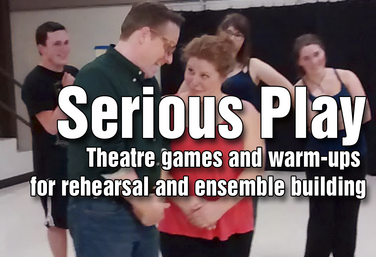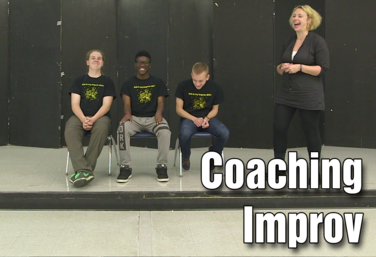Courses

Serious Play: Theatre Games and Warmups for Rehearsal and Ensemble Building
by Todd Espeland

Coaching Improv
by Jennine Profeta

Social Emotional Learning through Game Play
by Matt Webster
Lesson Plans
Status Monkeys
by Anna Porter
Objectives, Tactics, and Emotional Shaping
by Anna Porter
Pirate Ship Stage Directions
by Ruth Richards
Stage Direction Tic-Tac-Toe
by Marisa Peck
Main Idea and Story Detail Improv
by Karen Loftus
Commedia dell'arte: High Status and Low Status
by Todd Espeland
Improvisation: Characters
by Jennine Profeta
Resources
Tongue Twisters in the Theatre Classroom
Exercise: The Celebrity Gift Bag
Duet Scene Scenarios
Improvisation Feedback Tips
Moving Warm-Ups
Ten Rounds For Your Next Warm Up
The Vowel Tree
Kitty in a Corner
Improv Warm Up Games
Character Projection Warm Up
This Class is too Big!
Positivity Tunnel
Social Emotional Learning Through Game Play
PLCs

School Startup - Session One
Hosted by Karen Loftus, Matt Webster, and Jennine Profeta

School Startup - Session Two
Hosted by Matt Webster and Todd Espeland